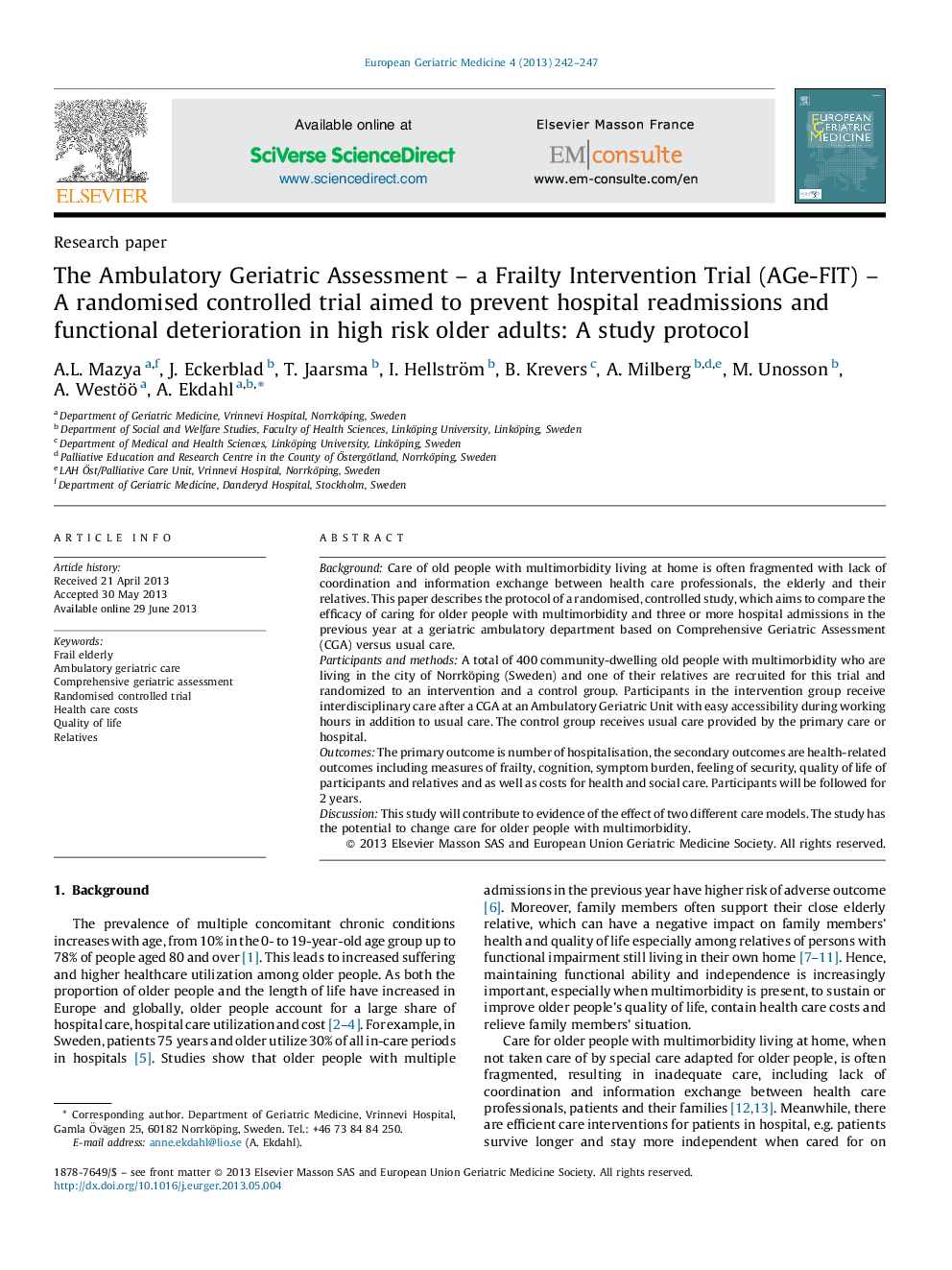| Article ID | Journal | Published Year | Pages | File Type |
|---|---|---|---|---|
| 3324742 | European Geriatric Medicine | 2013 | 6 Pages |
BackgroundCare of old people with multimorbidity living at home is often fragmented with lack of coordination and information exchange between health care professionals, the elderly and their relatives. This paper describes the protocol of a randomised, controlled study, which aims to compare the efficacy of caring for older people with multimorbidity and three or more hospital admissions in the previous year at a geriatric ambulatory department based on Comprehensive Geriatric Assessment (CGA) versus usual care.Participants and methodsA total of 400 community-dwelling old people with multimorbidity who are living in the city of Norrköping (Sweden) and one of their relatives are recruited for this trial and randomized to an intervention and a control group. Participants in the intervention group receive interdisciplinary care after a CGA at an Ambulatory Geriatric Unit with easy accessibility during working hours in addition to usual care. The control group receives usual care provided by the primary care or hospital.OutcomesThe primary outcome is number of hospitalisation, the secondary outcomes are health-related outcomes including measures of frailty, cognition, symptom burden, feeling of security, quality of life of participants and relatives and as well as costs for health and social care. Participants will be followed for 2 years.DiscussionThis study will contribute to evidence of the effect of two different care models. The study has the potential to change care for older people with multimorbidity.
